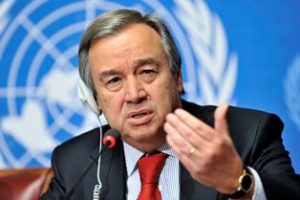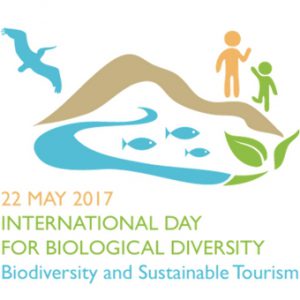CITES welcomes London Declaration on the illegal wildlife trade
Geneva: The London Conference on the Illegal Wildlife Trade, hosted by the Government of the United Kingdom (UK) and the British Royal Family on 12 and 13 February ( 2014 ) brought high-level representatives from 46 countries and 11 international organizations together in London to inject further high-level political commitment into efforts to tackle wildlife crime.
Sitting next to HRH Prince Charles, Prince William and Prince Harry, UK Foreign Secretary, Mr William Hague declared at the opening of the Conference: “It is no exaggeration to say that we are facing an unprecedented crisis: tens of thousands of elephants were killed last year; over a thousand rhinos lost their lives to poaching and trafficking; and tigers and many other species are under ever greater threat. But this is not just an environmental crisis. This is now a global criminal industry, ranked alongside drugs, arms and people trafficking.”
Mr Hague said: “We will recognise that CITES is a fantastic weapon in the fight against the illegal wildlife trade. It is the only body that draws the whole of the international community together on this issue. Its strength is that it is universal.”
Prince Charles told delegates: “Today you are breaking new ground by coming together and committing – at high levels never before seen at a conference on this topic – to take urgent action to put a stop to this illicit trade, which has become a grave threat not only to the wildlife and the people who protect them, but also to the security of nations.”
Political leaders, including the Presidents of Botswana, Chad, Gabon and the Republic of Tanzania, recognised the significant scale and detrimental economic, social and environmental consequences of the illegal trade in wildlife.
The 46 countries represented at the Conference adopted the London Declaration by acclamation, calling for further measures to eradicate markets for illegal wildlife products, ensure effective legal deterrents, strengthen law enforcement, and support sustainable livelihoods. They committed more resources to implement these measures, and to assess progress made in delivering on these political commitments over the next twelve months and beyond.
The CITES Secretary-General, Mr John E. Scanlon, when addressing the Conference, stressed that human traits such as greed, ignorance and indifference were driving illegal wildlife trade. He highlighted the collaborative approach taken by CITES , focussing on how Parties could collaborate across source, transit and destination States to solve the problems rather than seeking to attribute blame.
“The benefits of working together in a constructive and pragmatic manner were evident earlier this week with the release of the results of Operation Cobra II, a highly successful collaborative operation between 28 States in Asia, Africa and North America” said Scanlon.
Botswana announced that it will host a high-level follow-up meeting in 2015 to discuss progress in tackling the illegal wildlife trade according to CITES statement.
Feb. 14, 2014














